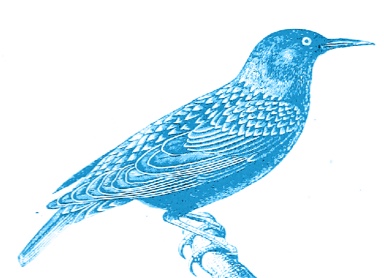The Motherhood recently hosted a conversation for a group of bloggers, family farmers and a veterinarian who are moms themselves. Panelists included Chris Chinn, a fifth-generation family farmer in Missouri; Wanda Patsche, a wife, mother and grandmother from southern Minnesota who farms with her husband, Chuck; and Meghann Pierdon, DVM, a mom of two and swine veterinarian currently working as an animal welfare resident at the University of Pennsylvania School of Veterinary Medicine.
Together, the group discussed the importance of public health, animal health and well-being, and the responsible use of antibiotics to keep animals healthy and to provide safe and nutritious meat products to families everywhere – including their own. We’ve included below some excerpts from the conversation.
What is the relationship with your veterinarian like?
Our veterinarian is like a member of our family, and we’ve been working with him for years. We consult him on everything that concerns our animal’s well-being. If an animal is sick, we always call him. When he treats animals he treats them on a per animal basis. We never decide how to treat animals; we leave that up to the veterinarian. We try to keep our farms as clean and healthy as possible. If we have a sick animal, we put the animal in a sick pen and separate it from the other animals. Everything we do is about prevention on our farms. We only want to use antibiotics when necessary. My family eats the same food that we sell to consumers, so we know it’s safe and we take the health of our animals seriously.
How do you balance the need to keep your animals healthy with the use of antibiotics?
We do all measures that we can on the farm to prevent illness. But there are times that viruses do happen. We closely follow orders from our vet. We also use our nutritionist who has designed a diet for our animals. He creates a diet for our animals that let them get all of the nutrients that will help them stay healthy and to continue to grow. As science has improved and we’ve more about the pig’s digestive system, we know better now what they need and what will keep them healthy.
How does testing work on farms?
On the farm we use record keeping to prevent any type of residue from happening and making sure all withdrawal periods are followed. We test at packing plants to make sure that all of the animals are ok. If there are any signs that an animal at a packing plant is sick, they will separate that animal from the rest and test it. They know within a couple hours what the result of that test is.
Are your animals free-range grass fed?
We moved our animals inside into our barn and we really prevented predators and the spread of disease. Now that the animals are kept inside, we use less medication than when they were living outside. It’s actually easier to keep animals healthier when they live inside more controlled environments. Cattle can eat grass because they have more than one stomach, but our hogs do not eat grass. They only have one stomach and they don’t get nutritional value from grass.
What changes have you seen with farming over your years of experience?
Our farm looks nothing like it did when we bought it! In the 80s we built our first gestation farm. It made a huge difference. We were in better control of giving the pregnant sows the care they needed. We’ve also seen farmers become more specialized, so farmers will either have a gestation farm or a finishing farm to focus on the different needs according to the different stages of the animals’ lives. Another big change was when we moved our animals indoors to the hog barn. What we saw when making that change is that we could control our animals better. We could control their waste, their climate, their food and overall their health.
Conversation sponsored by the National Pork Producers Council.


Take a Comment. Leave a Comment.
Read More ...
Influencer Marketing Resources: July 2025
Influencer Marketing Resources: June 2025
Influencer Marketing Resources: May 2025